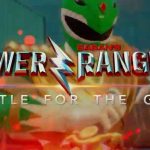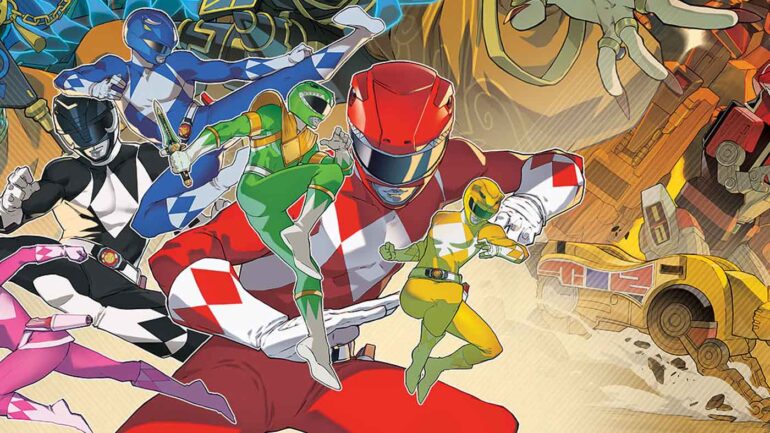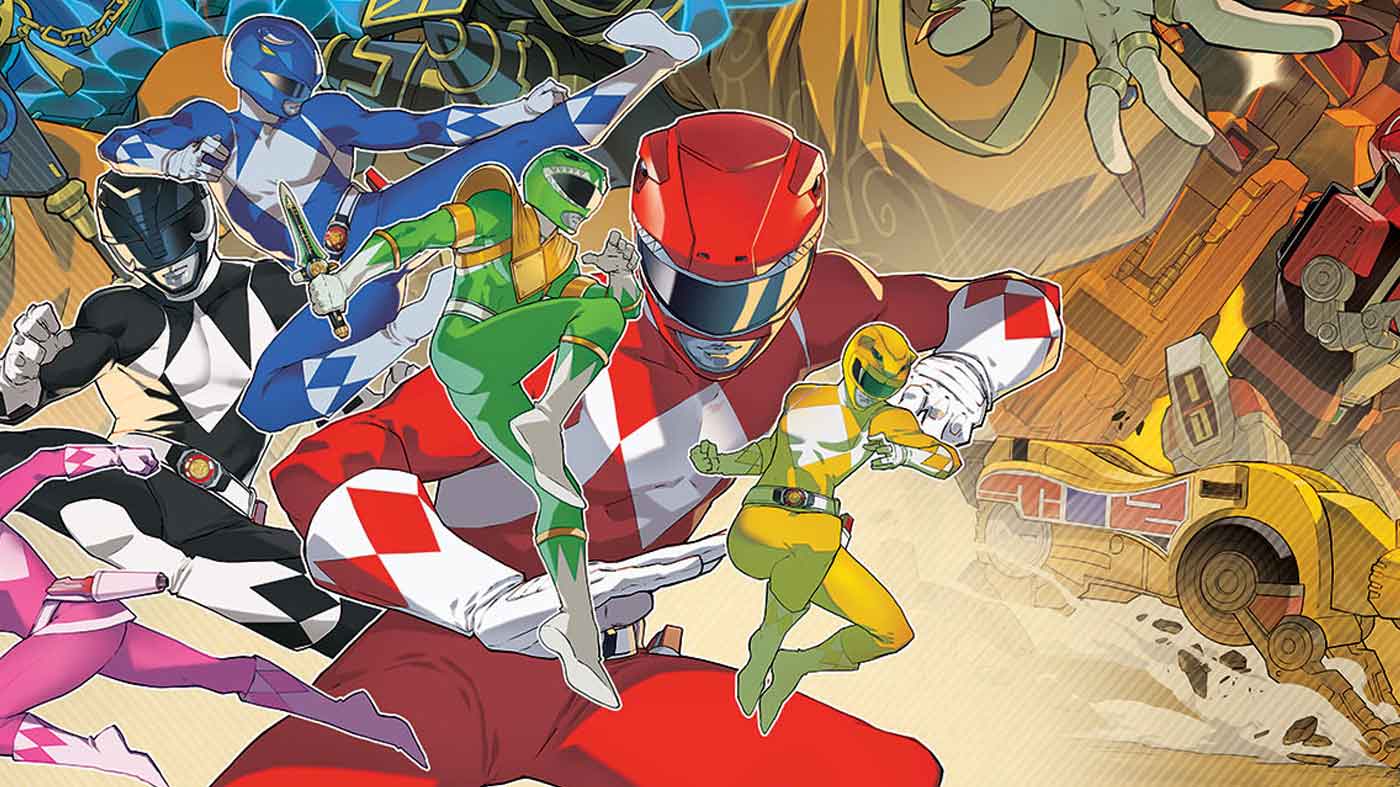Press Start may receive a commission when you buy from links on our site at no extra cost to you.
If there’s a brand I’m insanely nostalgic for it’s Mighty Morphin’ Power Rangers. It’s a series I grew up on, absorbing the series, film, video games, and toy figures—complete with head flipping action. To hear at Summer Game Fest that a classic-inspired, co-op beat ‘em up in the spirit of Shredder’s Revenge was on its way filled me with a glee I now struggle to describe.
Rita’s Rewind is built on the back of an unholy union between Robo-Rita and the Rita Repulsa we’re all too familiar with, as the former travels back in time to pair up with her once-physical self in remixing the past in an attempt to unwrite the Power Rangers from history. It riffs a little on story aspects we got in the recent reunion special Once and Always, such as having Robo-Rita return as the primary antagonist, however it’s its tongue-in-cheek jokes and references to the show’s first seasons that had me, a Rangers fan, grinning ear-to-ear.
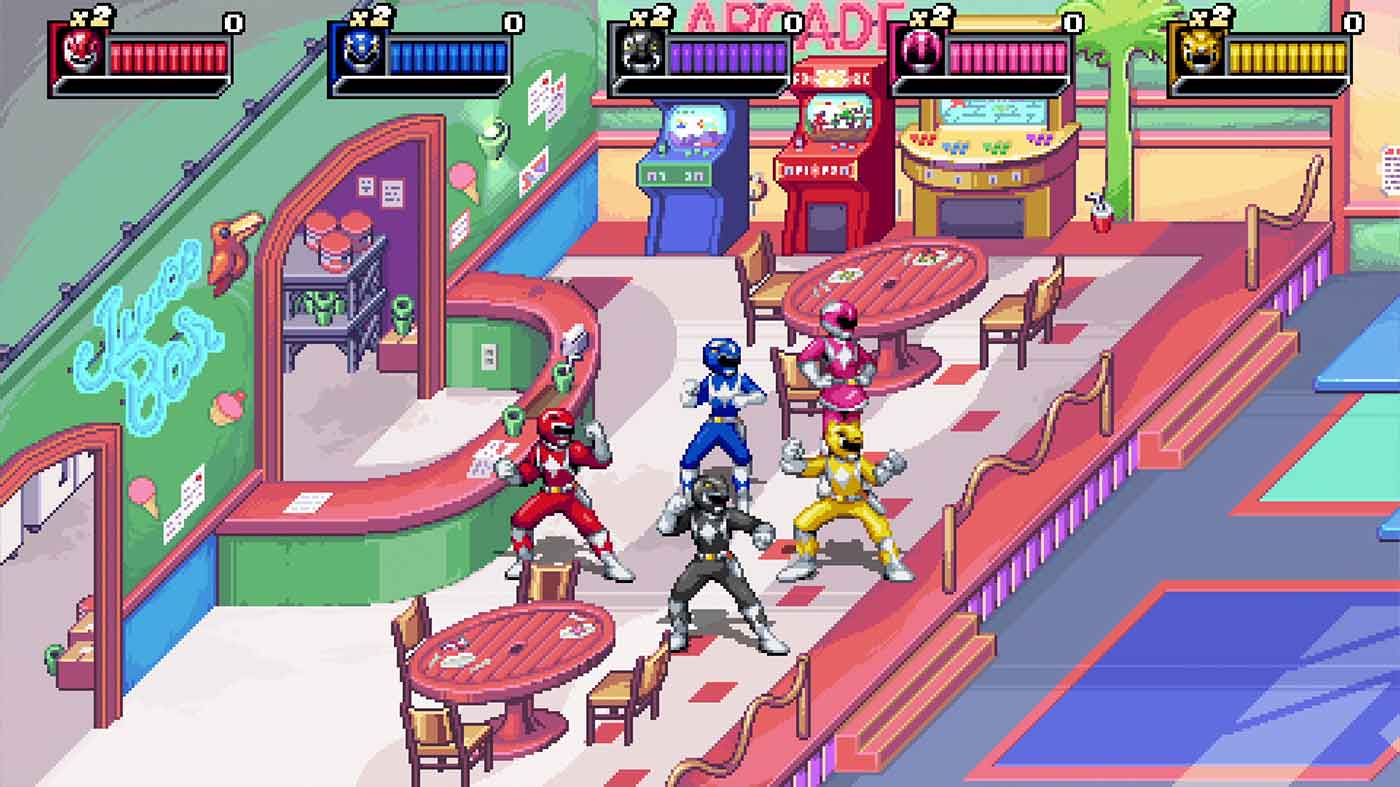
As someone who did adore the Power Rangers beat ‘em up from the Super Nintendo era, it’s probably worth mentioning this isn’t that. That original Natsumi release played a little slower and felt more in line with titles of the time like Final Fight, plus it wasn’t crafted with multiplayer in mind, robbing a game based around the world’s most powerful teenagers without any kind of team spirit. Rita’s Rewind, more than anything, emulates the structure and style of Shredder’s Revenge, the much-revered beat ‘em up centred around the Turts.
While the game is constructed around a pretty sturdy brand of side-scrolling mayhem, complete with five-player co-op, there’s a surprising amount of variety within the game’s fifteen stages. It mightn’t take long to get through, I rolled credits in a couple of hours for example, however catapulting from standard fisticuffs fare to Road Rash-esque power cycle levels chasing down Crabbie Cabbie, and then careening onto titanic kaiju battles against other iconic monsters from the show’s history, like Eye Guy, speaks to the fan service poured into this for sickos like me. While these big, spectacular moments break up the core loop of the game, it’s worth mentioning the brawling itself is absolutely serviceable although it isn’t without its frustrations.
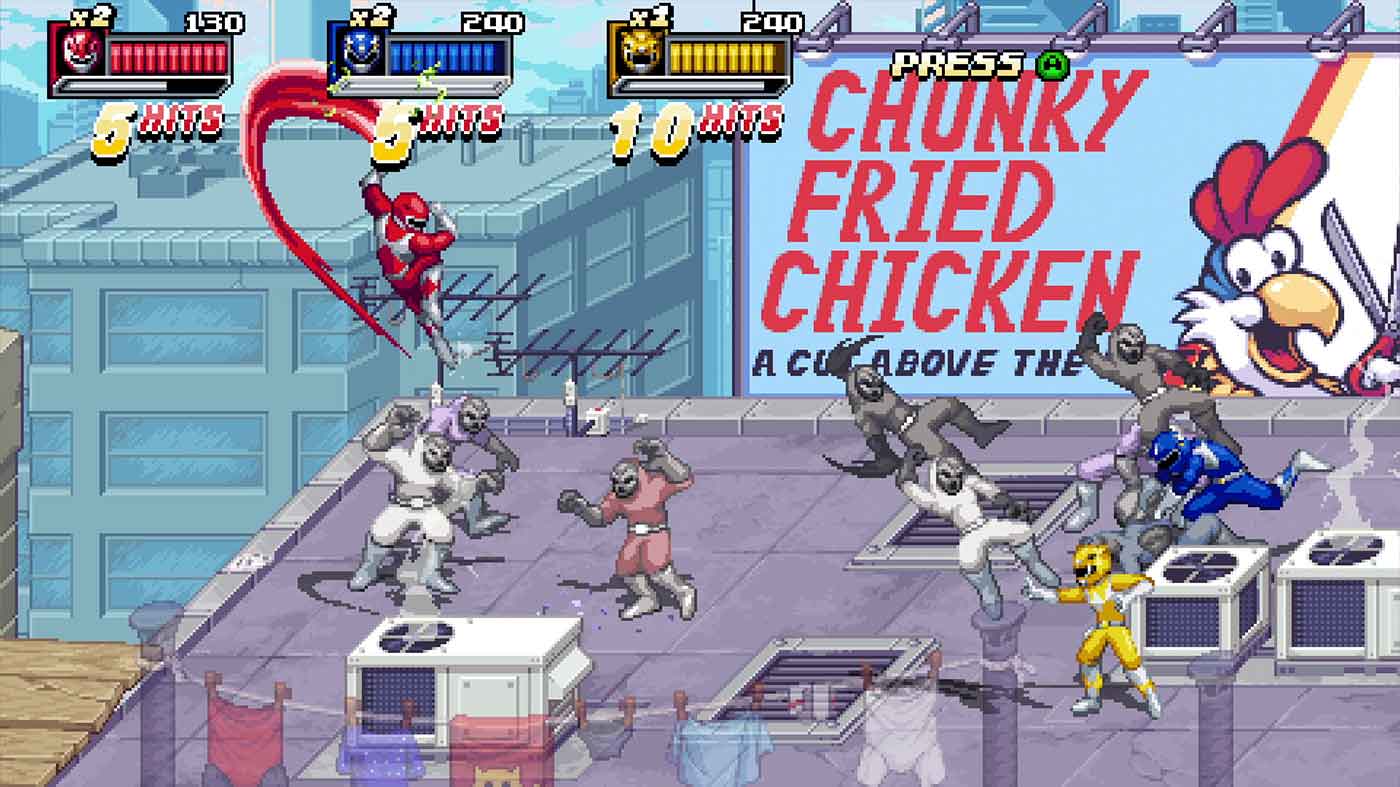
While many of Rita’s forces are easily dispatchable, certain enemies—including the purple putties that can block frontal attacks with their orbic fists—can linger annoyingly near to the screen’s limits, making rolling past them for a rear assault a pain in the butt, however it is never theirs as it should be. I also found the readability and perceived “fairness” of some area of effect attacks in boss fights a little off, as the dodge roll I was armed with never seemed to be enough to get my Ranger out of harm’s way. A final issue I had is that your special attack, which similar to the Super Nintendo title is intended to be a supercharged screen wipe, never quite seemed as damaging as I’d hoped—a shame considering it’s paired with a rad pose and even cooler power coin backdrop.
There are countless nods to Power Rangers lore, obscure and otherwise, throughout Rita’s Rewind, it’s clear the developers were in their bag when it came to translating every in-joke you could think of. Even Zack’s infamous “hip hop kido” dance made the cut for the opening cutscene, which had me howling. It’s a bit of a shame that, despite the willingness to utilise Rangers sight gags, the same care wasn’t put into the collectibles scattered throughout the game—a few no-name guest stars and chip boards to bring the Juice Bar’s arcade machines back to life didn’t eek any fanfare out of me.
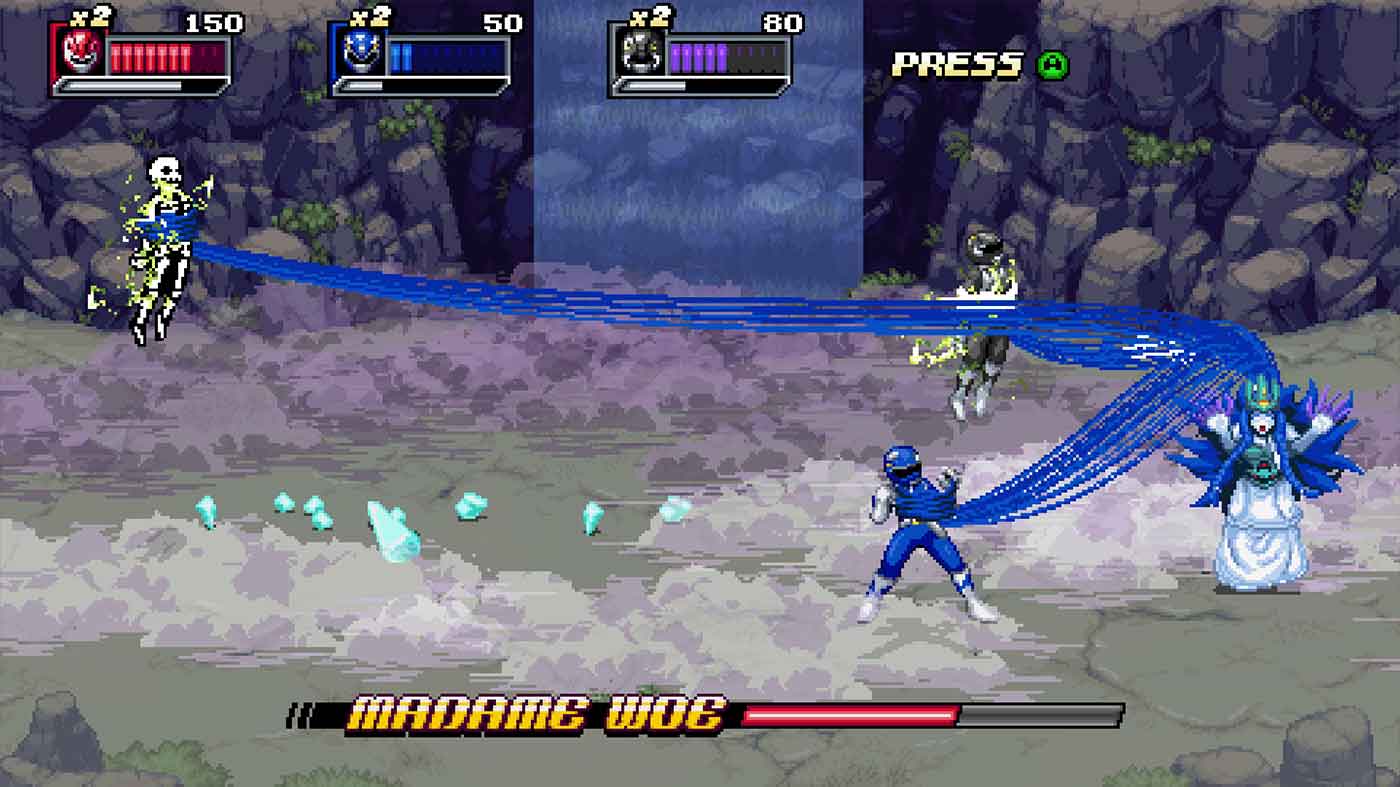
Being able to enjoy a few quiet moments in the Juice Bar in between episodes did feel mighty on-brand, of course. Outside of the aforementioned quarter-munching arcade machines, conversation and exposition seems to be the only justification for the time outs, though I loved chatting with Bulk and Skull purely due to their cheesy theme, which perfectly complements their ridiculousness, playing because, after all, idiots are forever.
Outside of Bulk and Skull’s corny, “fat guy” tuba motif, the music in Rita’s Rewind is phenomenal. Sean Bialo’s original score is so in keeping with the spirit and almost speed metal tone of the original “Go Go Power Rangers” theme, it’s hard not to scrunch up your face and headbang along at times. There isn’t much way of voice talent, outside of a few choice yells and cackles, so the music does a dutiful job shouldering the majority of the game’s soundscape.
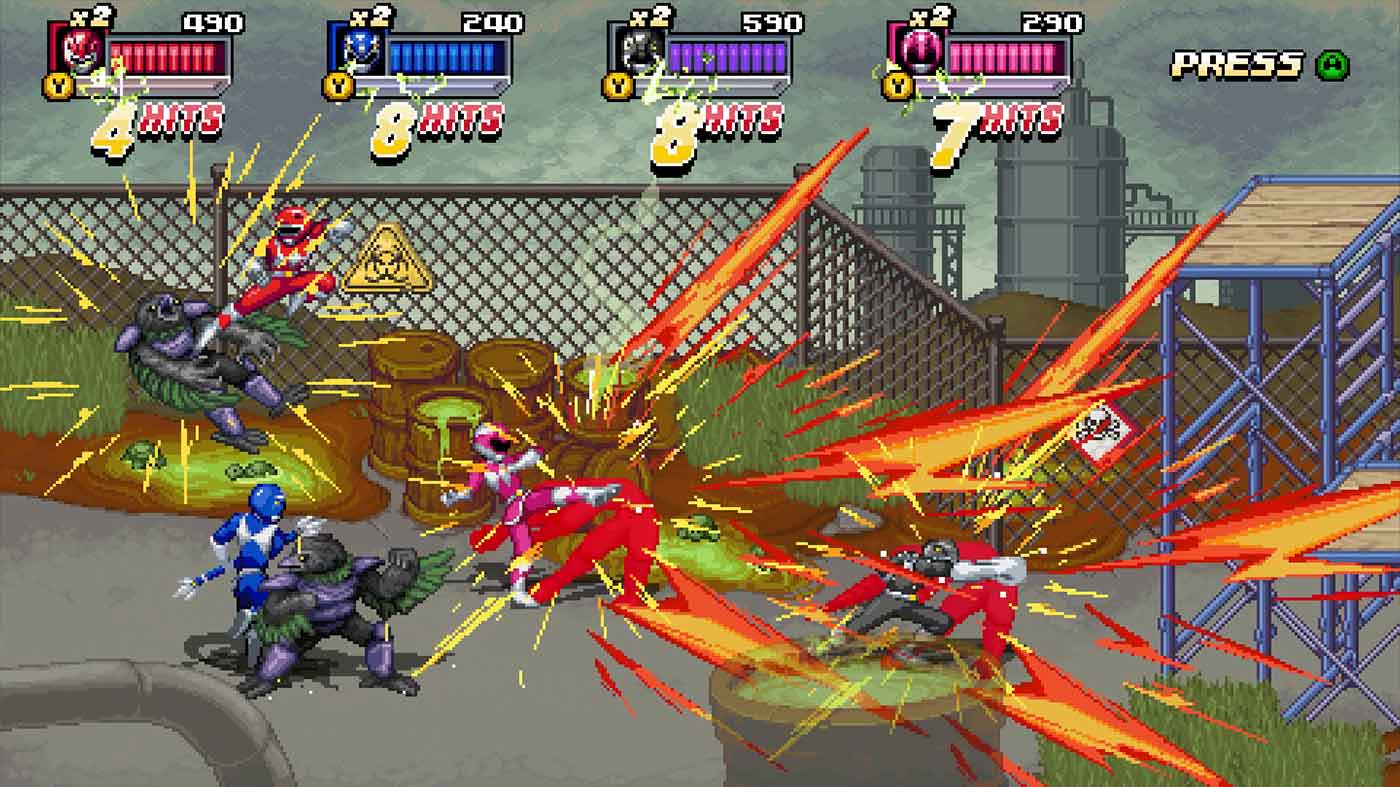
Rita’s Rewind, through its keen and fashionable pandering towards nostalgia, really does shine in all of the right ways. The music might thump, however it really is the stunning pixel art that completes the package. All of the Rangers, along with their unmasked selves, are all instantly recognisable, Rita’s rank and file is rendered in great detail, and this game achieves a level of stage design that feels as though the artists were scrubbing through episodes of the show to etch them out. Where the art goes to eleven, however, is whenever it emulates the revolutionary super scaler look, rendering the game’s biggest set pieces in three-dimensions.
For a brand that’s had a lot of attempts to get it right, Power Rangers: Rita’s Rewind might be the very best of them. It wears its love for the property on its sleeve, it’s got an immense and confident style, and most importantly, it’s a heap of fun. It might have a few shortcomings, but to kind of paraphrase Alpha-5, aye-yi-yi really like this game.

